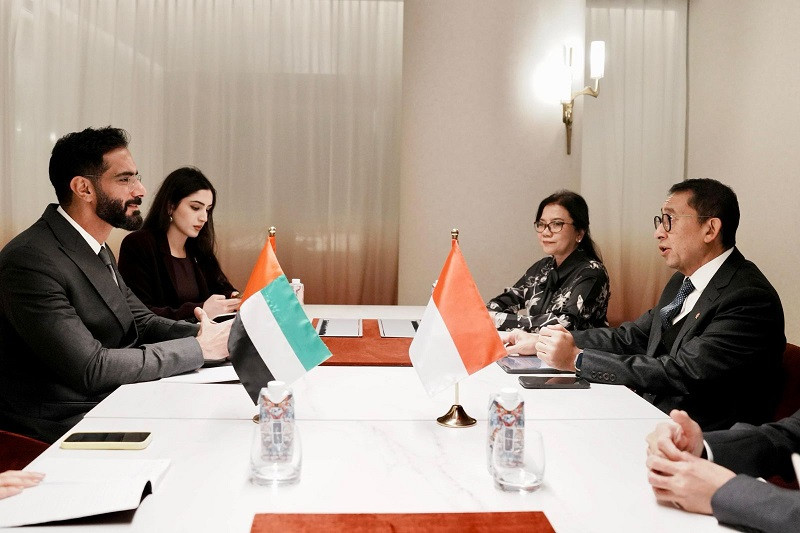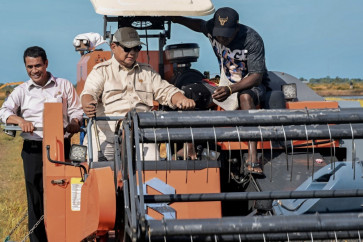Popular Reads
Top Results
Can't find what you're looking for?
View all search resultsPopular Reads
Top Results
Can't find what you're looking for?
View all search resultsFadli Zon emphasizes Indonesia’s role in global cultural policy at UNESCO MONDIACULT 2025
Change text size
Gift Premium Articles
to Anyone
D
uring his state visit to Europe, Culture Minister Fadli Zon attended this year’s UNESCO World Conference on Cultural Policies and Sustainable Development (MONDIACULT) in Barcelona, Spain.
Organized by UNESCO in conjunction with the Spanish government, the high-level conference served as a strategic forum to define the direction of global cultural policy, emphasizing culture as a key pillar for peace, unity and sustainable development.
Running from Sept. 29 to Oct. 1, MONDIACULT 2025 highlights six priority areas: cultural rights, digital technologies in the culture sector, culture and education, economy of culture, culture and climate action, and culture, heritage and crisis. It also covers two new, increasingly pressing issues: culture for peace, and artificial intelligence and culture.
Amid the series of activities, Fadli met and engaged in dialogue with his counterpart from the United Arab Emirates, Culture Minister Sheikh Salem bin Khalid Al Qassimi.
In addition to strengthening cultural cooperation, the UAE has officially invited Indonesia to attend as a guest of honor at the 2026 Al Burda Festival and Award in Abu Dhabi, an international celebration of Islamic arts.
Salem expressed his hope of presenting Indonesia's rich cultural heritage to the Emirati people, including calligraphy, poetry and Islamic illumination and ornamentation, while also providing a platform for young Indonesian artists.
"We look forward to showcasing more of Indonesia's rich artistic works and performances to the UAE public," he said.
Since 1976, the two countries have collaborated to build a strategic partnership in various sectors, particularly culture. This commitment is outlined in a memorandum of understanding (MoU) covering fine and performing arts, literature, cultural heritage, museums, cultural exchange and cultural preservation, which the two countries’ culture ministries signed in November 2024.
Indonesia and the UAE also have agreed to explore new opportunities for cooperation, such as joint film production, artist residencies, museum innovation and digital collaboration programs.
"We are also exploring opportunities for cooperation in exhibitions of Islamic civilization, exchanges of scholars and curators and collaboration in research and digitalization of cultural heritage," added Fadli.
In addition, Fadli met with Spain’s State Secretary for Culture Jordi Martí. During their meeting, the two discussed plans to update the 2004 Agreement on Cultural and Educational Cooperation, which focuses on collaborating in cultural heritage and museums as well as strengthening the cultural industry sector.
"Spain currently has an excellent network of national museums, such as the Prado, Reina Sofía and Thyssen-Bornemisza. They also have a very active audiovisual industry, recording more than 13 million visitors by 2024. This presents an important opportunity to deepen cultural cooperation between the two countries," he explained.
Fadli also encouraged exchanges between artists and curators, joint exhibitions, art and film festivals and digital innovation in cultural heritage management.
"With the agreement of the Indonesia-EU CEPA last week, cultural collaboration has become even more strategic for strengthening the foundations of friendship, expanding economic networks and making culture a key pillar of bilateral relations between Indonesia and Spain," he said.











